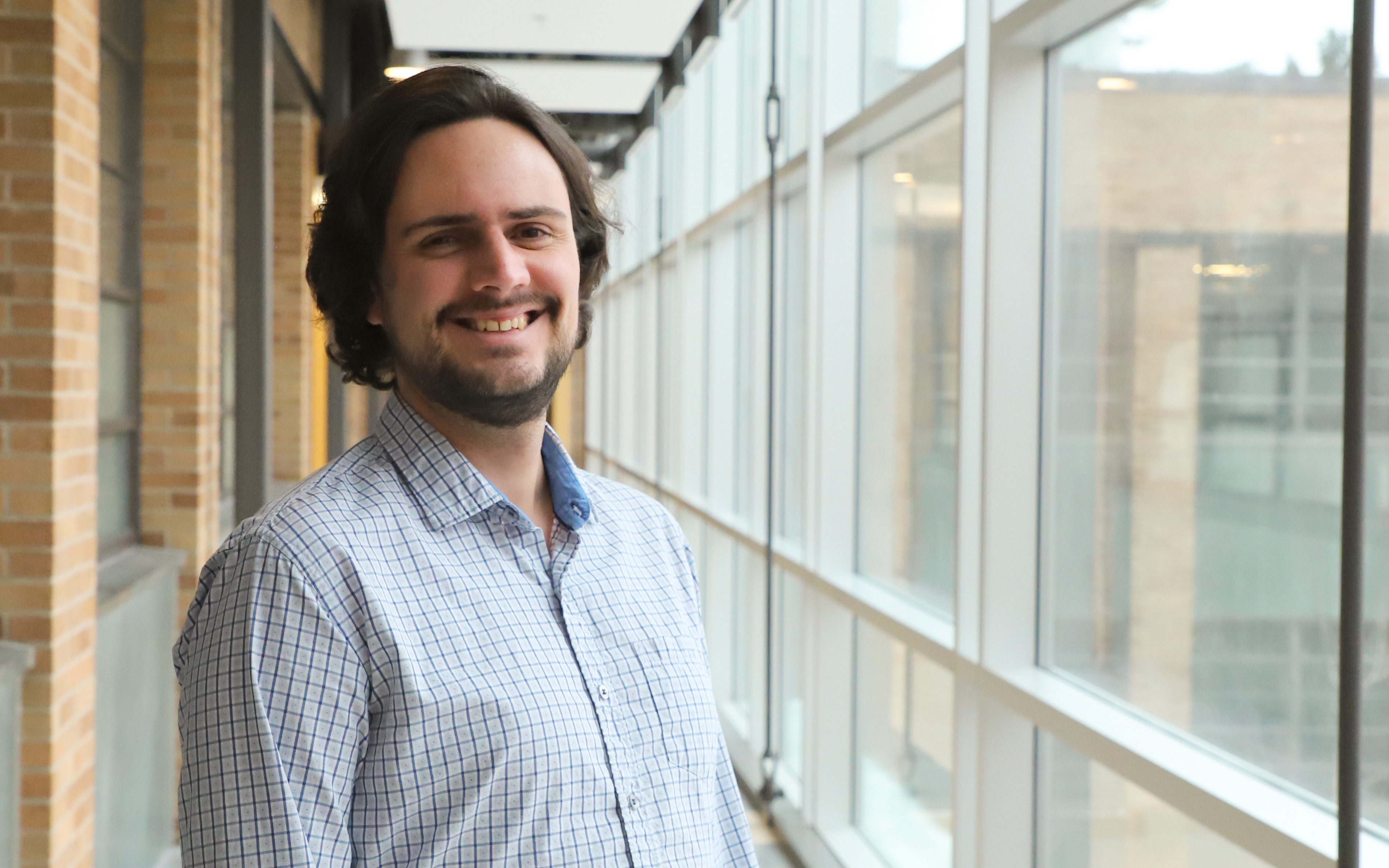This is a continuation of our "IANR is Global" series, which highlights the many ways internationalization is woven through the Institute of Agriculture and Natural Resources: through research collaboration, government and private industry partnerships, extension work, student educational experiences and the IANR community from around the world.
In honor of the hundreds of degrees the university will confer this weekend, we’re highlighting the journey of one newly-minted doctoral recipient, Dr. Daniel Santana de Carvalho.
Originally from Salvador, in the Bahia State of Brazil, Carvalho made the jump to Nebraska for his doctorate after completing his master’s degree in genetics and biodiversity from the Federal University of Bahia in 2014. The opportunity to work with someone with expertise in comparative genomics, a field in which he didn’t have much previous experience, led Carvalho to join the Schnable Lab led by associate professor James Schnable in the Department of Agronomy and Horticulture.
“The project Dr. Schnable had for me was really exciting and somewhat outside anything I've ever done,” Carvalho said. “Coming to Nebraska specifically taught me a lot about the agricultural aspect of my research and allowed me to work more closely in the field and with the people involved in making agriculture accessible to everyone.”
During his program, Carvalho studied the evolution of the C4 photosynthetic pathway in grasses. The most interesting part about his project, he said, was learning how different plants perform photosynthesis in different ways despite their close evolutionary relationships. While he found his doctoral studies to be challenging at first due to the language barrier and cultural differences, Carvalho soon adapted and thrived, earning the Department of Agronomy and Horticulture’s Henry M. Beachell fellowship, which recognizes academic excellence and research potential in the agronomic and horticultural sciences.
“Daniel is the best sort of graduate student you could hope for when you're trying to create a new research group from scratch. He was always excited and enthusiastic about learning new skills and coming up with new hypotheses to test, and enjoyed teaching those new skills to undergraduates and other members of my lab, just as much as learning them himself,” said Schnable. “The really positive and team-based lab culture Daniel helped create over the past four years is going to carry on, continuing to help new students for many years to come.”
Carvalho will return to Brazil to join the Molecular and Computational Biology of Fungi Lab at the Federal University of Minas Gerais under the supervision of Dr. Aristoteles Goes-Neto. There, he looks forward to developing new research projects and teaching graduate-level classes in one of the most prestigious bioinformatics departments in the country.
“I'm really thankful for Dr. Schnable for giving me the chance to work in such an amazing project even though I had little experience working in plant biology before I came to UNL. I’m thankful for him being such a great mentor for me; I learned a lot about myself as a scientist and science communicator,” said Carvalho. “Also, I'm really thankful for the Science without Borders scholarship (Programa Ciência sem Fronteiras, CNPq) granted to me in 2015 to support my Ph.D. education in the past 4 years. Without that scholarship from the Brazilian government, I would have not been able to pursue my doctorate at the University of Nebraska-Lincoln.”
Do you have an international element to your work, studies, or background that you'd like to see highlighted in our "IANR is Global" Series? Contact Brianne Wolf at bwolf4@unl.edu.
